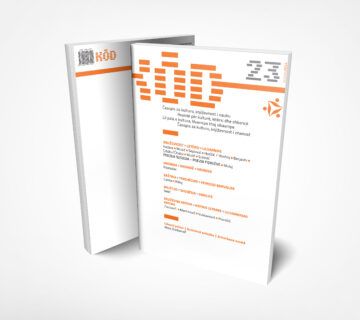
It is important for all practitioners who wish to offer DBT to obtain certification through the DBT-LBC program. Linehan herself discusses the importance of this certification in a live presentation for Family Action Network. During skills group, you’ll learn about and practice each skill, talking through scenarios with other people in your group. DBT uses three types of therapy approaches to teach the four core skills discussed above.
What conditions can DBT help treat?
Insurance coverageThis type of service is usually covered for individuals with extended health care benefits; however, we recommend that you follow-up with your insurance company to confirm this. This type of service is usually covered for individuals with extended health care benefits; however, we recommend that you follow-up with your insurance company to confirm this. While we are unable to respond to your feedback directly, we'll use this information to improve our online help. If you think DBT may be right for you, finding a qualified and experienced therapist in your area is crucial.
Overview of DBT

DBT skills are taught in both one-on-one and multifamily group therapy sessions, which can be virtual or in-person. Between sessions, phone coaching is also available to teens and parents. Dialectics is defined as holding two seemingly opposite ideas at one time, considering both to be truths. In DBT, “dialectical” refers to the idea of needing both acceptance and change to help improve symptoms.
Do not sell my personal information Privacy Policy and Terms of Use

Through DBT, individuals learn how to accept themselves for who they are and develop tools for dealing with difficult emotions and managing stress. Painful emotions are part of life, and DBT can help people to see this and learn to cope with them in a healthier manner. It is a structured treatment that involves individual therapy, group work, and phone consultations. Individuals will learn to regulate and accept their emotions and to set goals to improve their quality of life. Dialectical behavior therapy (DBT) is an evidence-based therapy that originated from cognitive behavioral therapy (CBT).
DBT was developed in the late 1980s by Dr. Marsha Linehan and colleagues when they discovered that cognitive behavioral therapy (CBT) alone did not work as well as expected in patients with BPD. Dr. Linehan and her team added techniques dialectical behavioral therapy and developed a treatment to meet the unique needs of these individuals. DBT is a comprehensive and multifaceted therapy designed to help patients cope with extreme emotional suffering and, often, self-injurious behavior.
- Another critical goal of DBT is to address behaviors that pose a life-threatening risk, such as suicidal thoughts, suicide attempts, and self-harm.
- The goal of all of these elements is to help the person build a life they feel is worth living.
- Emotion regulation skills help you label your emotions without judging them.
- By cultivating a mindful awareness of the present moment, you learn to observe and describe your thoughts and feelings without judgment.
A study published in the journal Behavior Research and Therapy indicates that DBT helped to vastly reduce self-injurious behaviors in the participants in a relatively short period of time. DBT was developed for people with borderline personality disorder. But it can help people with other mental health problems, including suicidal behaviour, self-harm, substance use, posttraumatic stress disorder (PTSD), depression and eating disorders. Dialectical behavioral therapy or dialectical behavior therapy (DBT) is a form of talk therapy. At the same time, you'll work on changing negative, unhealthy behaviors that are holding you back in your life. These include distress tolerance, mindfulness, emotion regulation, and interpersonal effectiveness.

Linehan later disclosed to the public her own struggles and belief that she suffers from borderline personality disorder. In individual sessions, patients review difficult situations and feelings they faced the prior week and engage in problem-solving by actively discussing ways of behaving that might have delivered a positive outcome. In addition, patients typically have access to therapists between sessions for skills coaching if they are in a crisis.
- Practitioners interested in becoming certified must apply to take an exam.
- It’s a common therapy for people with borderline personality disorder, but therapists provide it for other mental health conditions as well.
- Additionally, offering DBT services across levels of care also supports patients in maintaining their treatment gains and meeting individualized goals.
- In all, it takes around six months to complete the skills training modules following the standard DBT schedule.
This group was designed based on the evidence-based cognitive-behavioural therapy treatment model for ADHD. This group also integrates elements of other therapeutic techniques to more explicitly address emotion regulation and interpersonal difficulties that are also commonly experienced by adults with ADHD. Each week, for individual therapy sessions, patients complete a diary “card” (often done via an app), a self-monitoring form that tracks individualized https://ecosoberhouse.com/ treatment targets relating to moods, behavior, and skills. It aims to help people enhance their ability to manage their emotions by teaching them problem solving and coping skills. It is a skills-based treatment that is helpful for those experiencing difficulties managing difficult emotions and behaviours. The standard form of DBT consists of individual therapy, skills training group, phone coaching, and a therapist consultation team.
Who may benefit from DBT?
Dialectical behavior therapy (DBT) helps teens learn how to handle intense emotions and improve their relationships. It’s a type of behavior-focused therapy that teaches ways to manage strong feelings and tough situations. DBT can help individuals to recognize intense emotions, how to accept some of them as a part of life, and how to change ones that lead to negative actions.



